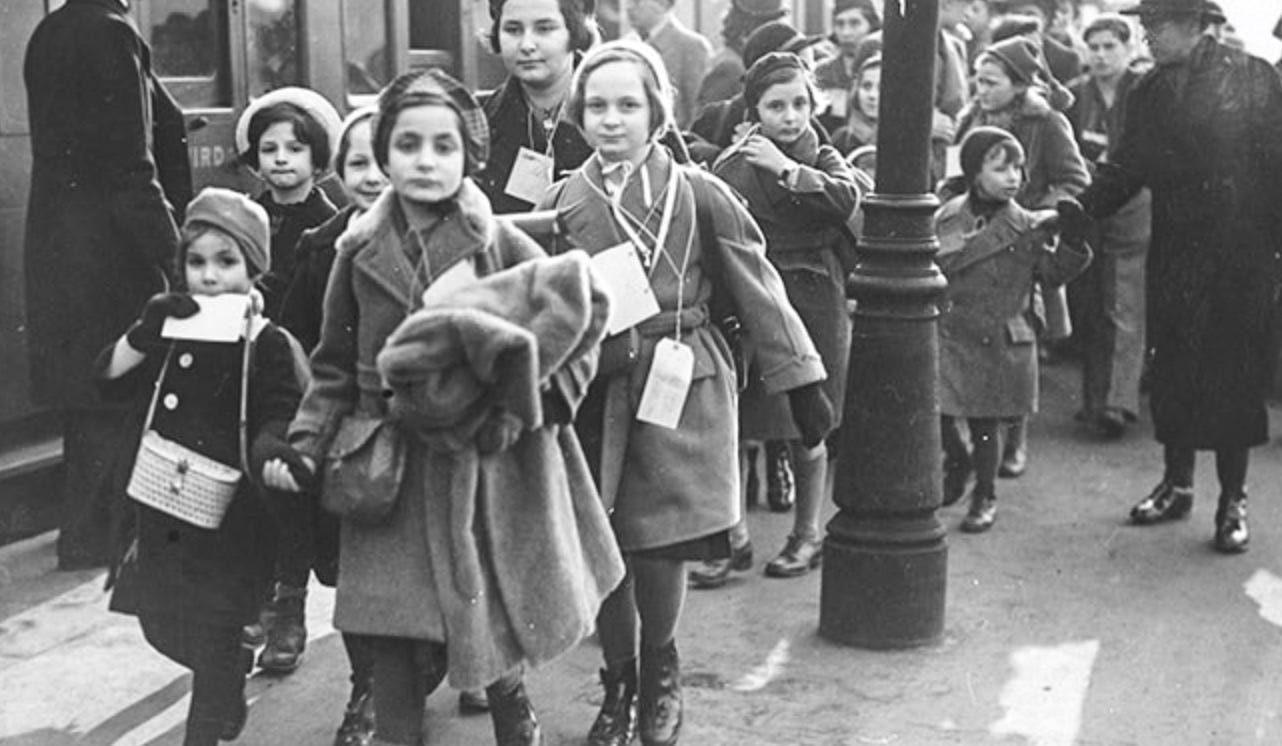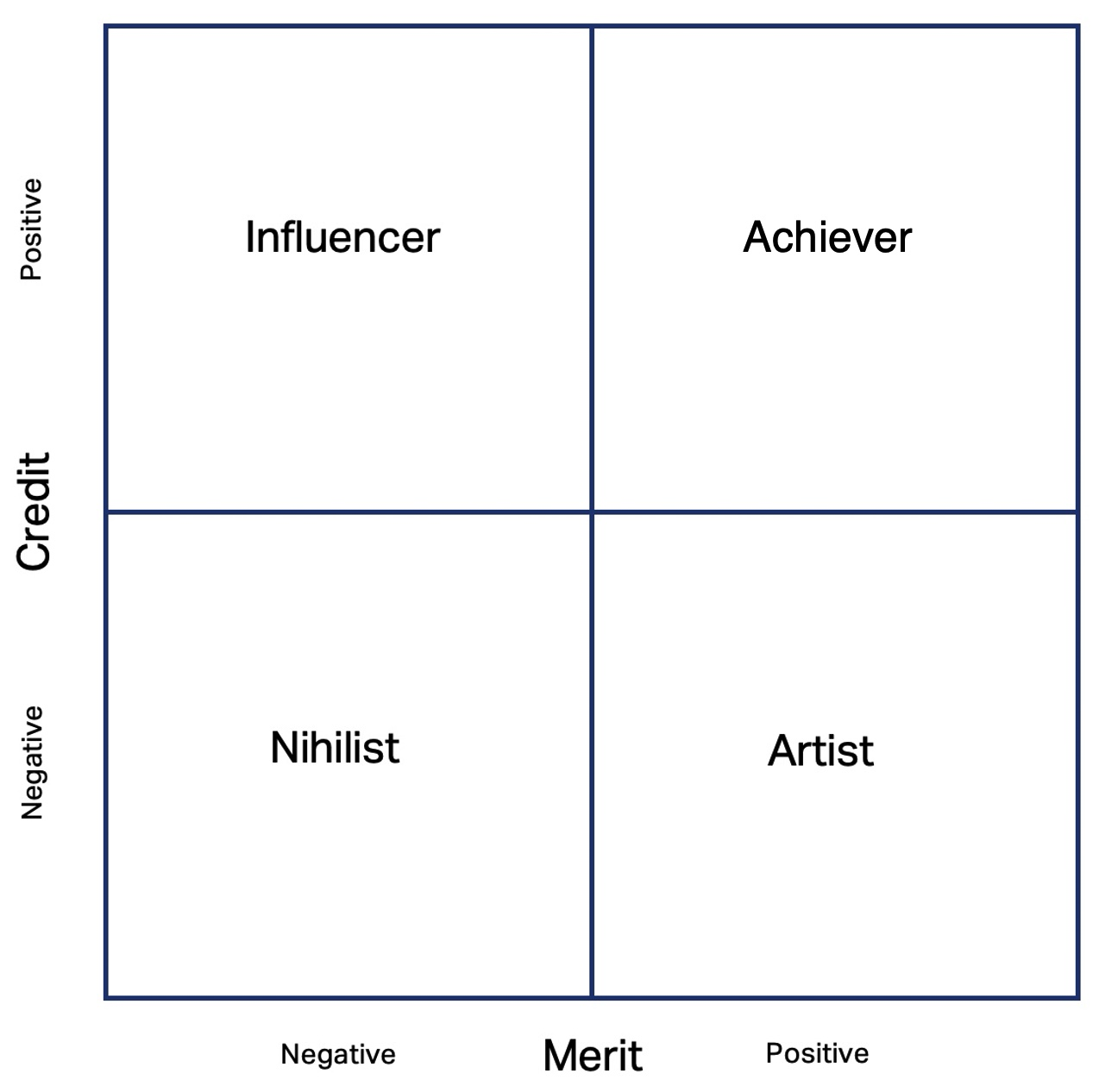Unattributed Good
post by Filip Dousek (fidnie) · 2021-06-04T20:47:58.146Z · LW · GW · 5 commentsContents
Network Credit The Artist as a Hero None 5 comments
Cross-posted from 10-year Horizon.
If a good deed is done and no one is around to see it, does it make a sound?
In 1939, Nicholas Winton found himself on a volunteer mission in pre-war Prague. Recognizing the darkening position of the Jews, he helped organize train transports that saved 669 children from concentration camps. Today, many of us have heard this fascinating story of good character. But the story was only uncovered in 1988 by the BBC, nearly 50 years later. Sir Nicholas is said to have never talked about it himself. To most of us, those uncredited decades are powerful and puzzling.

If a good deed is done and no one is around to see it, does it make a sound?
"I used to believe that a legacy was solely based on your achievements."
On an everyday scale, this happens to all of us. It’s the goodwill gesture that goes unnoticed in a relationship. The overlooked patience. The brushed-off compliment.
From the trivial to the heroic, there is a yawning mismatch between what’s done and what’s appreciated. It makes a glaring contrast with the visible measures of appreciation today: namely, social media likes. Who gets thousands of likes? What for? And who goes through life helping others, perhaps by simply being a little nicer than strictly necessary, yet stays invisible?
As with economic and other resources, the judgement of others is very unevenly distributed. Some are rich with recognition, applause, goodwill, trust, reputation and others are starved of a good word.
Ziyad Marar - Judged
Unattributed good is the delta between merit and credit. What an enormous amount of misallocated energy it represents! What an amount of inner tension in people! Especially considering that both merit and popularity are so highly prized today. Imagine a social network where the most popular people were the ones who did the most good. What would that feed look like? Very different from Instagram. We can bridge that. We don’t even have to look for the next Sir Nicholas. By noticing and acknowledging everyday kindness, we fix a little bit of it today.
Network Credit
But there is a twist to the story of Nicholas Winton. He wasn’t the lead architect of the operation. The idea of transporting children to safety was actually conceived by Doreen Warriner, who started putting together the list of names and called for volunteers. Winton came to Prague to organize the departures while she would look after the children on the trains and then fly back. So it turns out that attributing the good to Winton left Doreen forgotten. That is just a bad as the original unattribution—perhaps even worse, now that the whole world knows about Sir Nicholas.
And there were others—Martin Blake, Trevor Chadwick, Bill Barazetti. To Winton’s full credit, he himself modestly suggested that others were more suitable for the hero role. It raises a difficult question: how do we accurately assign credit? In theory, we do it by mapping the network of weaker and weaker influences on the lives of the actors. In reality, we pick a hero as a symbol, who gets overattributed the full credit of the network.
That’s why we know the names of the lead singers and rarely those of the bass players.
The Artist as a Hero
There’s another twist to the story. It is often said that Winton deliberately suppressed his role after the war, as if he was living the romantic maxim of Harry Truman, the post-war US president:
It is amazing what you can accomplish if you do not care who gets the credit.
That’s the part of the story that makes us gasp: a man who saves 600 children and finds it so natural that he doesn’t tell anyone. We all save children, don’t we? Or we would, given an opportunity?
It is a romantic notion, and it’s precisely the energy of the unattributed good that makes it romantic. It becomes a story of an absent prince (Prince Praise, of the Fame Kingdom) who one day rides in on a white horse to save us from the dragon Obscurity. The romance of it belies the idea that one should not care about credit. Merit is supposed to be all that matters, and working on our own popularity, immoral. Achieving credit denigrates our merit as lowly signalling.
Such is the morality of the eighteenth century artist-as-hero. But Nicholas Winton wasn’t, in fact, silent for decades about his heroic effort. Quite the opposite. His daughter says that he freely discussed it on occasion. It just wasn’t recognized as a major historic event until the BBC ran the story in ‘88. So Winton wasn’t the romantic, reticent figure the BBC painted, although he did have a sober view of the value of popularity:
“I’m only pleased if it has some advantage to somebody. Just to propagate the past is absolute nonsense.”
And even that isn’t the singular moral to be drawn about the unattributed good. We are all different. The different ways of regarding merit and credit create varied characters, each with their own drama and morality.

Here we can return to that original koan: If a good deed is done and no one is around to see it, does it make a sound?
Oh yes! Different sounds.
The achiever: “Here’s my publicity plan.”
The artist: “Just wait. I’ll be famous after I die.”
The nihilist: “And what did you expect?”
The influencer: “No likes? Wrong filter.”
5 comments
Comments sorted by top scores.
comment by Adam Zerner (adamzerner) · 2021-06-05T02:28:26.781Z · LW(p) · GW(p)
It's funny, today in my standup meeting, as an icebreaker we were all asked whether we would prefer credit to be given to us in a private chat, or publicly in a big meeting. I was going to make a joke about it being a silly question because it provides no signal: even if you do want the fanfare, you're not going to admit to it. Then a few people did speak up they'd appreciate it being public. And it was in such a way where it didn't sound pretentious or anything.
Anyway, I'm glad you bring this up. I never thought much about it, but after reading your post it's sounding like a topic that is pretty important. People respond to incentives after all, so if we figure out how to attribute more good, we can probably extract a lot more good.
Replies from: fidnie↑ comment by Filip Dousek (fidnie) · 2021-06-05T21:22:39.170Z · LW(p) · GW(p)
That’s an interesting coincidence. Yes, the desire to receive credit seems almost immoral in some circumstances. I wonder if it has to do with the Christian roots that cousin_it is pointing to below. Other cultures have different attitudes. I recall reading about Viking rituals called Bragas. After a battle, the clan would gather around a table, feast, drink and each warrior would brag mightily about their heroic deeds. If they couldn’t brag well (claim credit), they would be laughed at.
And thank you for your thoughts - after writing this, I came across your post on how “The best frequently don't rise to the top.” It struck me as quite related to this. I’d say that in your own words, you were writing about the delta between merit and credit. Or that’s how I read it.
Replies from: adamzerner↑ comment by Adam Zerner (adamzerner) · 2021-06-07T02:21:56.860Z · LW(p) · GW(p)
I wonder if it has to do with the Christian roots that cousin_it is pointing to below. Other cultures have different attitudes. I recall reading about Viking rituals called Bragas. After a battle, the clan would gather around a table, feast, drink and each warrior would brag mightily about their heroic deeds. If they couldn’t brag well (claim credit), they would be laughed at.
Interesting.
And thank you for your thoughts - after writing this, I came across your post on how “The best frequently don't rise to the top.” It struck me as quite related to this. I’d say that in your own words, you were writing about the delta between merit and credit. Or that’s how I read it.
Yup that's a gret way to put it.
comment by cousin_it · 2021-06-04T22:22:07.882Z · LW(p) · GW(p)
Good post. I think the principle you attribute to Truman is originally from the Sermon on the Mount ("don't let your left hand know what your right hand is doing").
Replies from: fidnie↑ comment by Filip Dousek (fidnie) · 2021-06-05T20:58:45.775Z · LW(p) · GW(p)
Thank you. Yes, agreed, that’s a significantly older instance. I wonder if we would find this also trickled down into Christianity from other ancient religions.